Dashnor Kaloçi
Memorie.al publishes the unknown story of the well-known family of Aromanian origin, Hobdari, whose suckers, after being educated and graduated from the most famous colleges and universities in the Balkans and Europe, returned to Albania opening laboratories, pharmacies and medical clinics, as well as the first modern factories in Tirana since 1914, being the founders of Light Industry in Albania. The testimony of Nasi Hobdari, one of the oldest of this tribe, for the tragic history of some of the most famous Hobdars, such as Alexander, who after graduating from the Commercial Academy of Athens, returned to Tirana where with his two brothers, Alqin and Jorgjin, opened the first factories of soap, chocolate, ice, soft drinks, etc., up to the tobacco factory “STAMLES” and the Power Plant of Tirana (SITA) that supplied electricity to the entire capital and had offers of cooperation with the famous German company, “SIEMENS”, etc. How did the communist regime nationalize all the factories and production lines in 1947 and some of them ended up in the prisons of the communist regime of Enver Hoxha, as “enemies of the people”?!
Although our Hobdari family was the one who first opened and set up the Light Industry in Albania in 1914, immediately after the end of the War and the coming of the communists to power, we nationalized all the factories we had. At that time, only Alqi and Aleksandër Hobdari were employed as technologists in those factories, while all the others did not see with their own eyes those factories and production lines that marked the first beginnings of the establishment of Light Industry in Albania. “Even some of the sons of our tribe, such as Asti and Petraq Hobdari, ended up in the prisons of the communist regime of Enver Hoxha, as political prisoners.” So, remembered Nasi Hobdari, one of the oldest suckers of the famous tribe of Aromanian origin, who told us the whole story of the trunk and kinship circle of his family, from the seventeenth century to the present day…
Who is the Hobdari family, where is their origin from and how did they start their commercial activity after the suggestion of Xhemal Pasha Zogu in the middle of the XVIII century? Who were the suckers of this great tribe, where did they graduate and who was Alexander Hobdari, one of their best known, whom Emperor Hiro Hito of Japan decreed as Honorary Consul in Tirana? What were the factories set up by the Hobdars in Tirana, who administered them and why were Asti and Petraq Hobdari sentenced to political prison in the first years after the war?
Hobdari, President of the Chamber of Commerce in 1921
One of the most famous suckers of that famous tribe that established the first Light Industry in Albania, was Aleksandër Hobdari, who was born in 1888 in the city of Tirana. After finishing primary school in his hometown and the Greek gymnasium in the city of Durrës, in 1910, Alexander completed his higher studies and graduated from the Commercial Academy of Athens. After his studies he returned to Tirana, where with his activity in the economic and commercial field, he became one of the most famous names of the Albanian capital. Regarding his activity as the first industrialist in Albania and the President of the Chamber of Commerce, his nephew, Nasi Hobdari said: “Initially, Aleksandër Hobdari together with his brothers and relatives, worked in Tirana to set up the Soap Factory, the installation of the first Bloja Mill with motor power in 1916 and the establishment of a small factory for the production of ice and soft drinks in 1918-19. In 1925, with the initiative of Alexander and some other merchants of the city of Durrës, the first joint stock company of tobacco was established, named “STAMLES”. This company from the beginning was very well organized and its equipment that was brought from Greece by the well-known firm “Papastartos”, were of a very advanced technology for the time. This society in its first two years 1925-1927, was led by Alexandria. In 1927, he took a very courageous initiative for the time, establishing in Tirana the Joint Stock Company “SITA”, whose main activity was the construction in Tirana of a powerful power plant for the power supply of the capital. It is worth mentioning that; the statute of this company was quite perfect and with all the requirements of the time, as were the statutes of the most developed enterprises of that time in the western states. Among other things, in the statute that was prepared by Aleksandër Hobdari himself, it was emphasized that the shareholders should be only Albanian citizens and for this reason since then this company was created and remained only with Albanian capital. Given that this company was the first and with a considerable capital, initially many difficulties were encountered for the sale of shares and for this Alexandria cooperated closely with the Tirana patriot Musa Vathi, who was known as a very honest man and with the authority of large throughout the city of Tirana. Diezel engines and generators with other electrical equipment were brought from Gratz, Austria. In addition to the construction of the Power Plant, this company also carried out electrical network installations, distributors and electrical installations in industrial buildings and private homes throughout the city of Tirana. All those works were carried out with a high quality and in accordance with all the standards that the German Electric Federation (VDE) had at that time “, said Nasi, regarding the industrial activity of the Hobdari family and its ancestor, Aleksandri, who after had set up in 1925 the joint stock company “STAMLES”, in 1927, set up another joint stock company called “SITA” which dealt with the construction of the Power Plant that would supply electricity to the city of Tirana.
Construction of the Power Plant
How was the construction of the Tirana Power Plant made possible and who were the people who financed and built it? One of the people who worked with Aleksandër Hobdari at that time was the well-known Tirana patriot, Musa Vathi, who in his memoirs preserved by his son, Besimi, wrote, among other things: “During the years 1925- 1927, that I was a member of the Municipal Council of Tirana, I had many divergences with many of the leaders of that Municipality, as I did not agree with the bad treatment of the capital at that time. During the time that I started working in the Chamber of Commerce of the city of Tirana, as its secrets, I met a young and very energetic guy named Aleksandër Hobdari, who was a very capable man and the perfect organizer for economic issues. I worked with Alexander until 1927, because at that time he left and started founding the SITA Company (Industrial Industrial Trading Company). At that time, according to the orders given to us by Aleksandër, I, together with some other friends, got to work and started selling the shares, and with the income we would collect, we intended to invest in the electrification of the city of Tirana. Aleksandër and I went to the merchants of Tirana and explained to them about the benefits that would come after the construction of the Power Plant, both for themselves and for the city of Tirtana. We also explained to them about the benefits of buying shares for the future, because with the construction of the power plant building (Social Security building in front of the gymnasium “Qemal Stafa”), which cost about 500 gold francs, the profits would be quite large. After all that hard and tedious work, we did, the shares were all sold and with the capital we raised, the Central building was built and all the machinery, cables, wires, cabins and other materials were purchased, which were brought all from Austria and Germany. At first many traders who bought the shares of that plant, feared that they were not wasting the funds they had given, but later the facts showed the opposite because that company was empowered and worked at a profit until 1945, when it was nationalized. from the communist regime”.
“SIEMENS” offers
The Joint Stock Company “SITA”, which was set up at that time under the auspices of Alexander Hobdari, had great success and its profits increased significantly, greatly strengthening it financially. Based on that fact, that company had numerous offers from well-known and very prestigious companies in Western Europe, to invest in Albania. In this regard, Nasi said: “In 1929, the German company” SIEMENS “, offered the company” SITA “to cooperate in the construction of a hydropower plant on the river Kir in the city of Shkodra and the construction of a radio station in the city of Tirana. A year later in 1929, also from the Company “SIEMENS” came an offer for the construction of a TPP in the city of Elbasan and the Company “SITA”, from Western foreign companies that under its guarantee sought to invest the capital of in Albania”.
Hobdari, Honorary Consul of Japan
In the early 1930s, the Joint Stock Company “SITA” became very powerful and took over the monopoly of salt production in Vlora and Kavaja. It managed to distribute salt at a unified price to all the farthest corners of the country, both on the coast and in the deepest mountainous areas. In addition, that company acquired a monopoly on the trade of matches, importing them from Sweden, and opened a store for the sale of electrical equipment imported from Germany through the firm “SIEMENS”. With the expansion of these activities, the Company “SITA” became a very strong joint stock company and its share values began to rise from year to year. Under the tutelage of Alexander Hobdar, she set up a model administration, paying its employees social security regularly. In those years, at the initiative of Alexander, a line was built for dry cleaning and washing of clothes, or as they are known by the inhabitants of Tirana, called “Cleanliness”. Given the great work he had done, Alexandria gained a great name as an industrialist, not only in Albania but also abroad. Based on this fact, in 1932, the Emperor of Japan, Hiroito, decreed Hobdar, with the duty of Honorary Consul of Japan in Tirana. Regarding this in the official letter of the Ministry of Foreign Affairs of Albania, at that time it was announced:
We have the honor to inform you that, according to the letter that the Minister of Japan in Athens addressed to the head of this Ministry, the Government of the Japanese Empire, has appointed on April 20, Mr. Alexander Hobdari, General Director of SITA, as Her Honorary Consul in Tirana. “As soon as the ordinary executor comes out, please give the necessary instructions to the authorities that depend on that ministry in order to provide Mr. Aleksandër Hobdari, with his new official quality”.
Tirana, 14 May 1932. Minister of Foreign Affairs
That same year, the Vienna government also appointed Hobdar as its Honorary Consul in Tirana. In 1935, his name was included in the World Encyclopedia of Prominent People “isho is It” (p. 439), which provided some brief biographical information about his life and the functions and duties he performed in it. time. Alexander exercised these functions until 1939, when fascist Italy carried out military aggression against Albania. After that time, he dealt only with his activity as an industrialist, managing his and his family’s assets. In 1943, when the Germans came to Albania, the High Regency summoned Alexander and asked him to accept the function of National Economy, but he refused, telling them that he had no desire to engage in politics. During the war years, the Hobdari family, like many other Tirana trading families, helped the Anti-Fascist Movement, giving different amounts of money and some of them, such as Kristaq and Sokrat Hobdari, became partisans by joining the Peza Çeta of Baba Myslymit.
Destructions and punishments of the Hobdars
Aleksandër Hobdari and other members of his tribe such as Naumi, Marku, Dhimitri, Anastasi, Sotiri, Prokopi and Stvari Hobdari, who had established the first Light Industry in Albania, administered their properties which consisted of several factories and production lines, until 1947, when the communist government of Enver Hoxha issued the law on nationalizations. At that time only Aleksandri and Alqi Hobdari were employed as technologists in those factories, while the others no longer saw them with their own eyes. Some of them, such as Petraq and Asti Hobdari, even ended up in communist prisons as political prisoners. Regarding this, Nasi Hobdari recalled: “Asti Hobdari was born in 1915 and after graduating from high school in Tirana and Shkodra, he went to study in Italy, where he graduated from the Medical University of Rome, in Pharmacy. After graduation he returned to Albania where after working for some time as a pharmacist, in 1947 he was arrested on charges of “agitation and propaganda”. After being released from prison in 1949, he worked again as a pharmacist in Poliçan, Gjirokastra, and later in the town of Milot, where he died in 1963. While Petraq Hobdari, who was born in 1920 in the city of Tirana, in 1929, he graduated from the High School of Finance in the city of Naples in Italy. After working for some time as Inspector General of the S.I.T.A. Company, in 1946 when it was nationalized, he began working in the Ministry of Transport as Director of the Plan-Finance Directorate. In 1951, he was arrested like many other intellectuals who had graduated from the West, and suffered for five years in communist regime prisons accused of being “enemies of the people.” After he was released from prison, he worked in the OMT Office until he retired “, concludes his story, Nasi Hobdari, regarding his family and other members of the Hobdari tribe, who are known as the people who laid the foundations the first of Light Industry in Albania.
Unknown story of the Hobdari family / From the first factories in Tirana, to pharmacies, laboratories, medical clinics, and the first cinema “NACIONAL”
The early origin of the Hiobdari family is from the Aromanian tribes that are thought to have come to Central Albania along the Egnatia road, since the time of the Romans. Like many other Aromanian tribes that settled in the Elbasan area at that time, the Hobdari family lived until the end of the 17th century in the village of Smolnik in Çermenika, which is located on the western side of Jablanica / Jabllanica Mountain. In the mid-18th century, the Hobdari tribe was forced to relocate due to attacks by various gangs of thieves looting in that province. Like all Aromanian families, the Hobdari tribe was mainly engaged in livestock and agriculture, from which they were also known as “shepherds”. In addition to that work, they also worked as carpenters describing the road: Struga-Elbasan-Tirana-Durres, and vice versa. Because the men of that tribe were most of the time away from their homes, for days, their homes were attacked from time to time by gangs of robbers. Forced by these conditions and circumstances, the Hobdari tribe left that province and in 1850 they settled in the city of Tirana. Also, another version of their relocation is finding the market and the large spaces that are created there for their activity. The first of this family, during the period they settled in Tirana, was Filip Hobdari, who is thought to have been born around the end of the 17th century or the beginning of the 18th century. After Philip, the most famous of the Hobdar tribe was Demetrius, who was the first of that family when they lived together in a patriarchal way. Dhimitër Hobdari had started his commercial activity in the city of Bitola and its surroundings, where he met Xhemal Pasha Zogu, Ahmet Zogu’s father. Xhemal Pasha suggested to Dhimitr to transfer a part of his commercial activity to that area and he responded with great pleasure to the offer of Xhemal Pasha Zogu, and having his protection and guarantee, with the caravans he had regularly supplied that area. When Xhemal Pashë Zogu married the well-known Tirana family, Toptani, he started coming to this city often and since then he suggested to Dhimitr to expand his commercial activity in the big capital of Albania, in Tirana. After that, Dhimitri and his tribe moved and came to Tirana, which is thought to be the main reason for the displacement of this tribe in this city, from where it no longer moved. At the beginning of their arrival in Tirana, they bought a house and settled on Fan Koja Street, near the Orthodox Church, where today is located the Hotel “TIRANA” (15-storey). At first, the Hobdars lived together as one large patriarchal family and soon they became entrenched in the life and rest of the natives. In the city of Tirana, the Hobdari family no longer engaged in livestock and agriculture, but began their activity by trading in various handicrafts. The activity they started very quickly yielded the first fruits and profits, significantly increasing the financial income of their entire large family. Seeing that goods coming from Eastern countries were much more expensive than those coming from the West, as well as travel uncertainty, the Hobdars began to import their goods from the West, connecting with Italian traders in Brindisi and Naples. Given the good economic situation they achieved as a family, in addition to their commercial activity, they began to show care for the education of their children, sending for studies many sons and grandsons from that family, such as: Milto, Petraq and Dhimitër Hobdari, Vangjel Zaharinë, Jonuz Tafaj, etc. One of the first sons of that tribe who were educated at that time, was Jakov Dhimitër Hobdari, who was born in 1865 in the city of Tirana. After graduating from high school in the city of Bitola, Jakov went to Greece and began his studies at the Faculty of Medicine at the University of Athens, where he graduated with honors. Dr. Jakov Dhimitër Hobdari, is known as one of the first doctors of the city of Tirana and the second in this city, after Dr. Shaqir Maras. After graduation, he returned to Albania and began to practice his medical profession, first in the city of Berat and then in Kavaja and Durres. Around 1904, Dr. Jakov Hobdari was appointed as the director of an open ambulance that had been set up by the Austro-Hungarians in the city of Durrës. In that city, Dr. Jakov served until 1918 and then he settled with his family in the city of Tirana, where he practiced his profession as a doctor. In those years he dealt more with the treatment of contagious diseases, such as tuberculosis, syphilis, and typhus, for which he had studied and specialized even after graduating from college. Dr. Jakob Hobdari served as a physician until the end of the period of the Bird Monarchy, when he passed away. Dr. Hobdari left two sons, Milton and Spiron, who were born respectively in the 1880s and 1883. The first son, Milto, after graduating from high school on the island of Corfu, went to Italy where he studied Chemistry-Pharmacy at the University. Naples, where he earned the degree of Doctor of Science. Milto returned to Tirana where, in addition to opening a private pharmacy, he set up a laboratory for medical tests. Dr. Milto Hobdari was the first pharmacist in Tirana to practice his profession only for a period of two years, as a serious illness separated him very quickly from life. The other son, Jacob, after finishing high school on the island of Corfu, continued his higher studies in Paris, where he graduated in Dentistry. After graduation, Spiro Hobdari returned to the city of Tirana, where for many years he practiced his profession of dentist, first in a private clinic and then in the Military Hospital and Dental Polyclinic of Tirana. Spiro, who passed away in 1960, is remembered as one of the best dentists in Tirana. After these, one of the other sons of the famous Hobdari family, who were educated and graduated outside Albania, was also Alqi, or as he was otherwise known as Nikola Jani Hobdari, who was born in 1883 in Tirana. After graduating from the unique school in his hometown, Alqi finished high school at the Greek Gymnasium in Durrës and then attended classes in Athens, near a two-year Vocational School of Light Industry. Alqi together with his two brothers, Aleksandër and Jorgjin, was the first sucker of this family that caused them to start their activity in the field of Light Industry. The three of them together with the relatives of the Hobdari tribe, since 1914, started working and set up the first soap factory in the city of Tirana, since from 1890, they produced the soap craft in the house Theirs. After that, in 1916, on Durrës Street, they installed the first Bloje Mill with motor power (until that time the mills worked with water) and in 1918, they set up a small factory for the production of ice. of alcohol and another factory for the production of soft drinks. After this activity that marks the beginning of Light Industry in Tirana, together with two other partners, in 1922, they opened the first cinema in Tirana called “Nacional” (later “17 November”) after Tirana became the capital of Albania and the population increased significantly, and consequently the need for industrial products, the three brothers: Alqi, Aleksandri and Jorgji Hobdari, in 1928, built on Rruga e Durrësit, a large industrial complex with a modern factory for ice production (which at the time was needed for hospitals and bars), a soap factory, a Distillery for the production of industrial alcohol from corn, a laboratory for the production of perfumes with essences imported from the prestigious German firm GEROGE Gurt ”Of Leipzig, and a modern line for the production of soft drinks, taking the exclusivity of the German firm“ SINALCO ”based in Dortmund. This whole industrial complex, from its creation until 1947 when it was nationalized by the communists, was administered by Alqi Hobdari, after the two brothers Jorgji and Aleksandëri were engaged in other activities. With the arrival of the communist regime in power in 1945, the commercial and productive activity of the Hobdari family ceased to exist and completely ceased, to whom not only were all their property and possessions seized, but some of them ended up in prisons. of the communist regime of Enver Hoxha, being accused of being “enemies of the people” and the name and fame they had as the founder of Light Industry in Albania, would fade over the years, to be archived and remained as property” Of the history of the Albanian capital, Tirana./Memorie.al




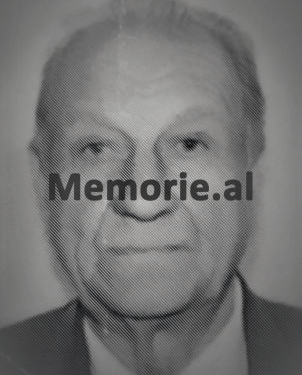
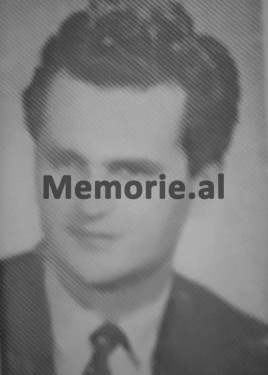

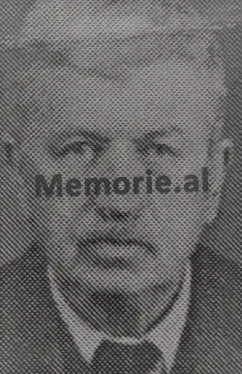
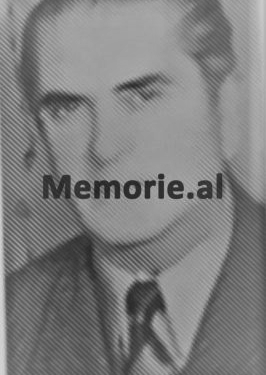
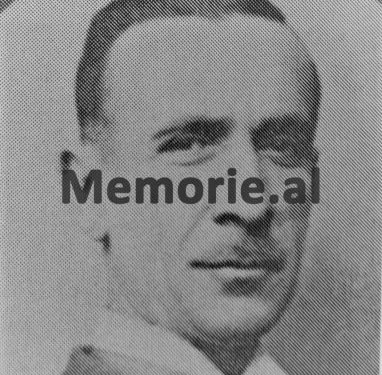
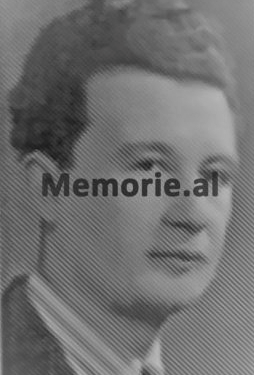
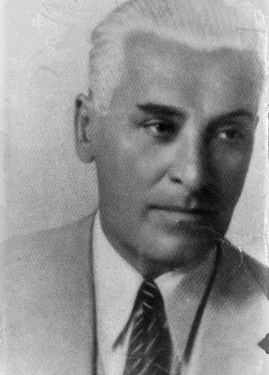
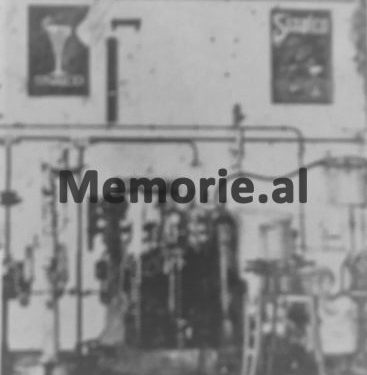
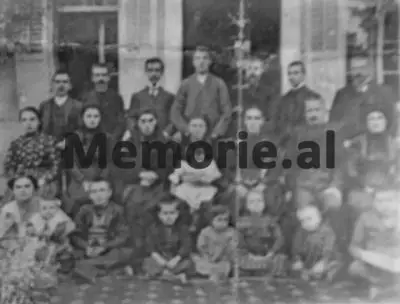
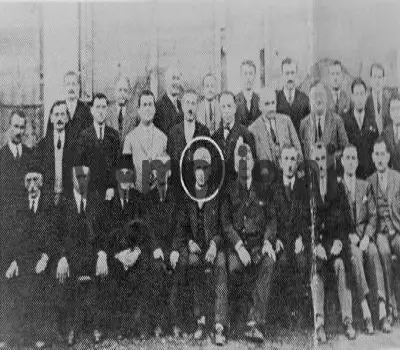
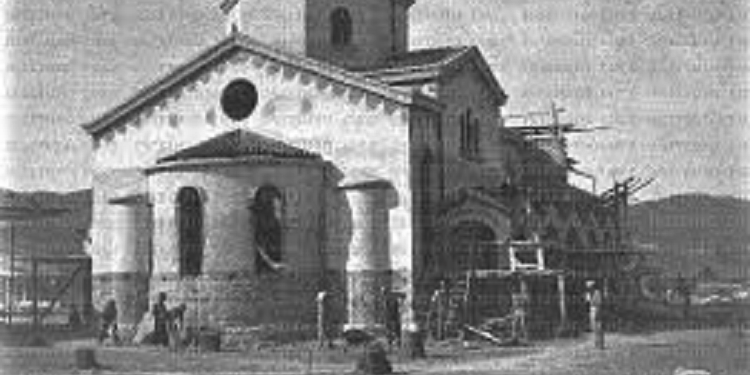
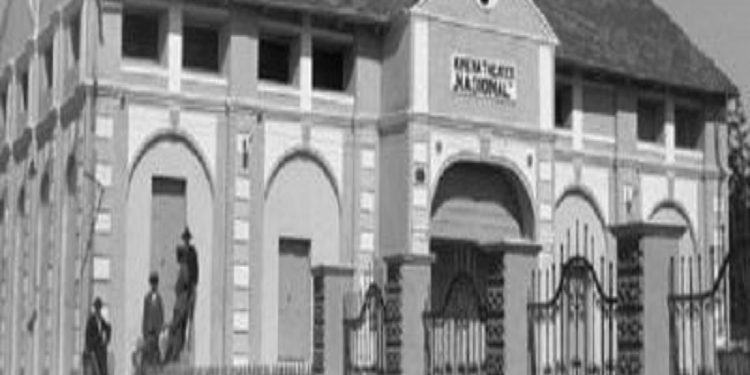
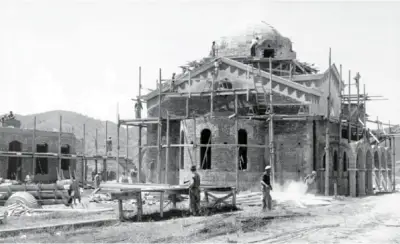
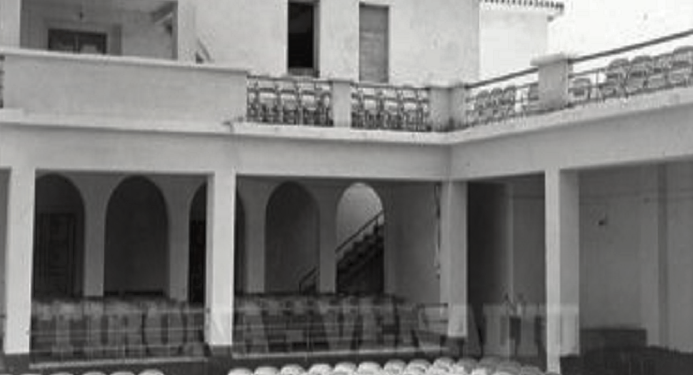
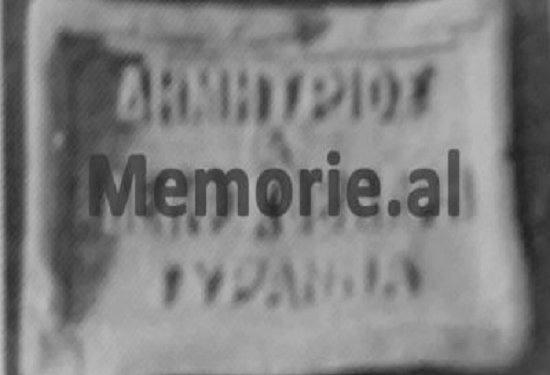
![“When the party secretary told me: ‘Why are you going to the city? Your comrades are harvesting wheat in the [voluntary] action, where the Party and Comrade Enver call them, while you wander about; they are fighting in Vietnam,’ I…”/ Reflections of the writer from Vlora.](https://memorie.al/wp-content/uploads/2025/06/admin-ajax-4-350x250.jpg)


![“The ensemble, led by saxophonist M. Murthi, violinist M. Tare, [with] S. Reka on accordion and piano, [and] saxophonist S. Selmani, were…”/ The unknown history of the “Dajti” orchestra during the communist regime.](https://memorie.al/wp-content/uploads/2026/02/admin-ajax-3-350x250.jpg)
![“In an attempt to rescue one another, 10 workers were poisoned, but besides the brigadier, [another] 6 also died…”/ The secret document of June 11, 1979, is revealed, regarding the deaths of 6 employees at the Metallurgy Plant.](https://memorie.al/wp-content/uploads/2026/02/maxresdefault-350x250.jpg)

